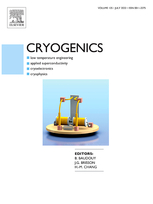
Development of mass production type rigid polyurethane foam for LNG carrier using ozone depletion free blowing agent.
Author(s) : LEE Y., BAEK K. H., CHOE K., et al.
Type of article: Article
Summary
Nowadays the price of natural gas has become higher and the efficiency of propulsion system of liquefied natural gas (LNG) carriers has improved. Due to these trends, required boil-off rate (BOR) for LNG carrier has been lowered from 0.15%/day to 0.12%/day for conventional LNG carriers with sizes between 125,000 m3 and 170,000 m3. This requirement of BOR can be satisfied by using a rigid polyurethane foam (PUF) blown by 1,1-dichloro-1-fluoroethane (HCFC-141b) as an insulator. However, ozone depletion potential (ODP) of HCFC-141b requires alternative blowing agents with zero ODP such as hydroflurocarbons (HFCs) because of tougher environmental regulations. This paper introduces use of HFCs and additives to enhance properties of rigid PUFs under a mass production environment. Among the additives, perfluoroalkane (PFA) reduces thermal conductivity down to 12% and increases compressive strength up to 15% of a rigid PUF prepared in a laboratory scale. Based on this result, a mass production type rigid PUF is manufactured and is evaluated for BOR, mechanical strengths over operation temperature range,
and thermal shock stability for LNG carriers. The BOR of the manufactured rigid PUF is below 0.12%/day, which satisfies the recent BOR specification for LNG carriers. The other required properties are also met the specifications for a conventional LNG carrier. Consequently, it is expected that the results in this paper will bring low BOR (<0.12%/day) LNG carries with rigid PUFs using ODP free blowing agents and contribute environmental protection through saving energy and preserving the ozone layer in the stratosphere.
Details
- Original title: Development of mass production type rigid polyurethane foam for LNG carrier using ozone depletion free blowing agent.
- Record ID : 30020879
- Languages: English
- Source: Cryogenics - vol. 80
- Publication date: 2016/09
- DOI: http://dx.doi.org/10.1016/j.cryogenics.2016.09.002
Links
See other articles in this issue (31)
See the source
Indexing
-
Themes:
Properties of cryogenic fluids and materials;
Insulants;
LNG and LPG - Keywords: Methane carrier; Polyurethane; Foam; LNG; Development
-
Adsorption of methane on laboratory-made crushe...
- Author(s) : CHAIX L., OCAMPO J., DOMINE F.
- Date : 1996/04/18
- Languages : English
- Source: C. R. Acad. Sci., Sér. II, A - vol. 322 - n. 8
View record
-
LATTICE PARAMETERS, THERMAL EXPANSION COEFFICIE...
- Author(s) : PROHVATILOV A. I., ISAKINA A. P.
- Date : 1983
- Languages : Russian
- Source: Fiz. nizk. Temp. - vol. 9 - n. 4
View record
-
Developments proceed slowly in world LNG industry.
- Author(s) : HALE J.
- Date : 1980
- Languages : English
- Source: Pipeline Gas J. - vol. 207 - n. 3
View record
-
CALCULATION OF THE DENSITY OF METHANE GAS BY A ...
- Author(s) : SIEVERS U., SCHULZ S.
- Date : 1982
- Languages : German
- Source: Gas-Wasserfach, Gas Erdgas - vol. 123 - n. 3
View record
-
Cryogenic equipment of car fuel systems.
- Author(s) : CFASMAN G. Û., BARMIN N. V., DUDKIN I. E.
- Date : 1998
- Languages : Russian
- Source: Kholodilnaya Tekhnika - n. 2
View record
